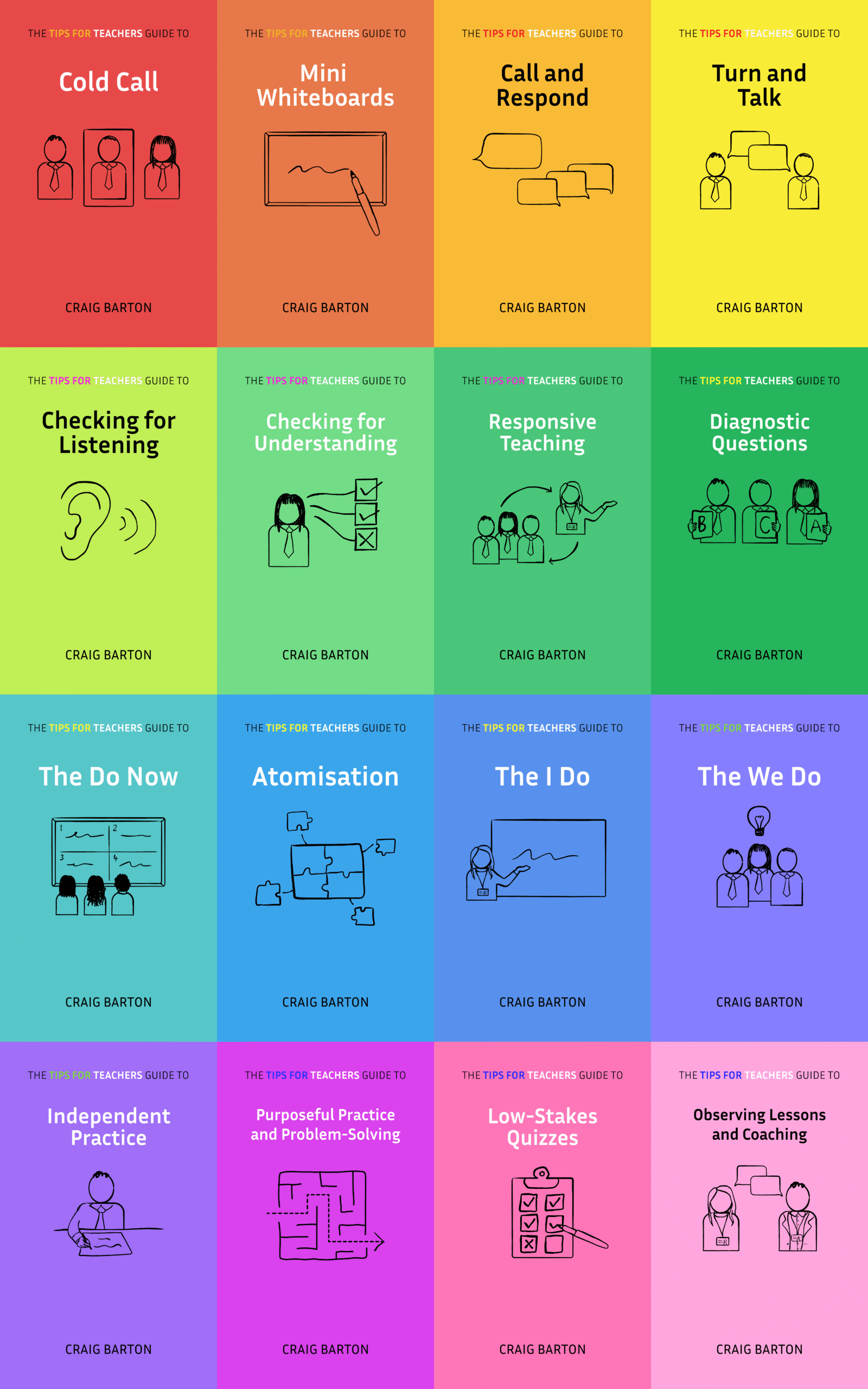Over the last few years, I have been fortunate to observe thousands of maths lessons in schools across the UK and beyond. This website is my attempt to share what I have learned so that any teacher or department can take steps to improve their students’ outcomes.
Blog posts
I have written up all the things I learned from my school visits into a series of themed blog posts. These posts include images, audio recordings and research links. These posts are available for free, and always will be.
Click here to read the blog posts.
Books
I have written 16 books, each one focused on a single area of pedagogy. Each book in the Tips for Teachers guide to… series is crammed full of evidence-based, practical strategies you can try the very next time you step into a classroom. They are priced at £8 per book.
Click here to find out more.
90-minute on-demand CPD workshops
These workshops are designed for teachers to work through together. For a fee of £99 (+VAT), you can share an entire workshop, or selected clips, with all staff at a CPD session or a departmental meeting, as many times as you like, for a year.
Click here to find out more.
Face-to-face CPD
I have limited availability to speak at face-to-face events, including keynotes, workshops at conferences, full-day sessions with all staff, and in-depth sessions with mathematics departments.
Click here to find out more about the face-to-face CPD.
Research
I have analysed some of my favourite research papers and broken them down to identify the key implications for teachers in the classroom.
Click here for the research index page.
Videos
I have recorded a series of videos featuring world-leading education experts, each focused on a specific, concrete strategy or idea. Feel free to use these videos as part of your department’s or school’s CPD offering.
Click here for the video index page.
Podcast
Since 2015, I have interviewed the world’s leading educational experts on my Mr Barton Maths podcast. Listen and learn on your drive to work, whilst walking the dog, or whenever you like.
Click here for the podcast index page.















